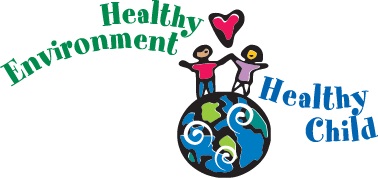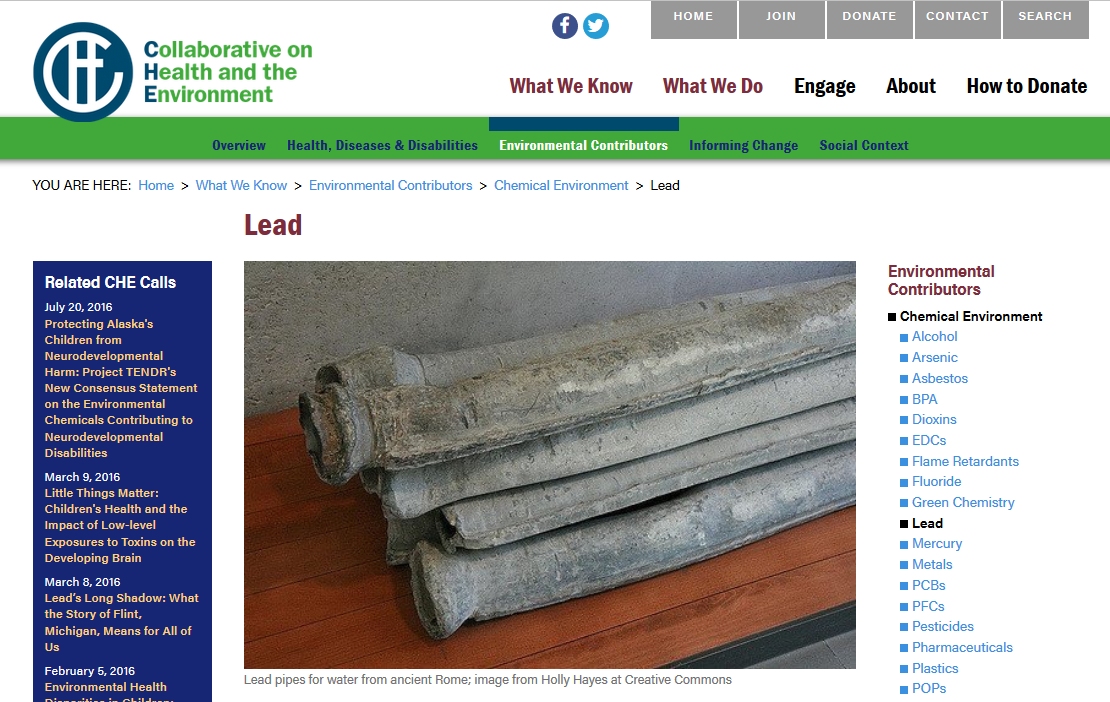Blog
Post category: informing change
2017
What’s new
A New Chapter in A Story of Health!
Reiko and Toshio are a Japanese-American couple in their early 30s who met in college and later married. They have been trying to have a child for about a year and feel frustrated that Reiko is not yet pregnant. They are not alone—infertility is not uncommon.
Follow Reiko and Toshio as they explore what may be contributing to their infertility and their options for interventions. Their story is the newest chapter in A Story of Health multimedia eBook, available at no cost. This eBook uses videos, infographics and articles by experts to illustrate where and how we live, work, and play can influence reproductive health. Written for health care providers, prospective parents, health advocates, policy makers and others concerned about environmental influences on reproductive health, the story includes links to additional resources and scientific references on each page.
Health professionals can register for free continuing education credits (CE) through the Centers for Disease Control and Prevention (CDC), with ATSDR hosting the CE accreditation pages.
The first installment of the eBook, with chapters on asthma, developmental disabilities and childhood leukemia, is also available to download for free, either in total or as individual chapters.
A Story of Health has been developed in a collaboration among the federal Agency for Toxic Substances and Disease Registry (ATSDR), the Center for Integrative Research on Childhood Leukemia and the Environment (CIRCLE) at the University of California, Berkeley, Collaborative on Health and the Environment (CHE), the Office of Environmental Health Hazard Assessment, California EPA (OEHHA), the Science and Environmental Health Network (SEHN), and the Western States Pediatric Environmental Health Specialty Unit (PEHSU).
2017
What’s new
New Pediatric Environmental Health Web Toolkit for Providers
Parents say they are concerned about environmental health threats, yet most pediatric care providers do not offer prevention strategies during office visits. Why? Many providers report they feel ill-equipped to educate families about common exposures. In an effort to fill the need for environmental health information, Pediatric Environmental Health Specialty Units and Physicians for Social Responsibility have launched the Pediatric Environmental Health Toolkit (PEHT). The PEHT, endorsed by the American Academy of Pediatrics, is based on material in the AAP "Green Book". This free and up-to-date resource offers trusted information at your fingertips.
2017
Newsletter essay
What’s new
Season of Change at CHE
When I first spoke to Michael Lerner, co-founder of CHE, about the opportunity to direct CHE, Steve Job's 2005 commencement speech at Stanford University immediately jumped to my mind. "You can't connect the dots looking forward; you can only connect them looking backward. So you have to trust that the dots will somehow connect in your future." . . .
2017
What’s new
HEAL Receives the 2017 Environmental Award
 The Bursa Chamber of Medicine, the official local branch of the Turkish Medical Association, awarded the 2017 Environmental Prize to CHE's Partner the Health and Environment Alliance (HEAL) during National Doctor's Day in Turkey. This award recognized HEAL's contribution to the resistance against the planned DOSAB coal power plant in Bursa. HEAL's figures on the health costs of air pollution associated with coal were used to challenge the official environmental impact assessment. Read the press release and view HEAL's report The Unpaid Health Bill, How coal power plants in Turkey make us sick. . . .
The Bursa Chamber of Medicine, the official local branch of the Turkish Medical Association, awarded the 2017 Environmental Prize to CHE's Partner the Health and Environment Alliance (HEAL) during National Doctor's Day in Turkey. This award recognized HEAL's contribution to the resistance against the planned DOSAB coal power plant in Bursa. HEAL's figures on the health costs of air pollution associated with coal were used to challenge the official environmental impact assessment. Read the press release and view HEAL's report The Unpaid Health Bill, How coal power plants in Turkey make us sick. . . .
2017
What’s new
FDA-EPA Updated Fish Consumption Guidelines and Poster
 Earlier this year the EPA and FDA updated their recommendations on fish consumption during pregnancy and childhood. To accompany this update, they provided an easy-to-understand printable poster grouping fish into Best Choices that can be eaten two to three times a week, Good Choices that can be eaten once a week and Choices to Avoid categories. See the poster. . . .
Earlier this year the EPA and FDA updated their recommendations on fish consumption during pregnancy and childhood. To accompany this update, they provided an easy-to-understand printable poster grouping fish into Best Choices that can be eaten two to three times a week, Good Choices that can be eaten once a week and Choices to Avoid categories. See the poster. . . .
2017
What’s new
Video Presentations of Climate and Health Conference Available
On February 16, 2017, the Carter Center in Atlanta hosted the Climate and Health Conference, originally scheduled by the Centers for Disease Control and Prevention and then postponed indefinitely. Motivated by the idea that “health is the human face of climate change”, 300 climate change leaders, organized by a coalition of nongovernmental organizations and former Vice President Al Gore, attended this conference. Watch the video coverage. . . .
2017
What’s new
Connecting the Dots
 Toxipedia's latest newsletter focuses on the importance of putting science in context. This month Toxipedia founder Dr. Steve Gilbert explores the interplay of science, ethics and history to promote better health-based decisions. To read more on how these interactions are necessary to move us beyond traditional risk assessment, read the newsletter. . . .
Toxipedia's latest newsletter focuses on the importance of putting science in context. This month Toxipedia founder Dr. Steve Gilbert explores the interplay of science, ethics and history to promote better health-based decisions. To read more on how these interactions are necessary to move us beyond traditional risk assessment, read the newsletter. . . .
2017
Newsletter essay
What’s new
We Are All Biologically Embedded
Given the grave concerns about scientific research and health-protective regulations being sidelined for political reasons in the US right now, I'm finding it hard to see the forest for the trees. Instead I feel I'm racing through a massive forest trying to protect one tree before it's cut down, only to find that the next 100 trees have already been decimated. I know I'm not alone in this. . . .
2017
What’s new
Keeping the Focus on Science in State Policy
As the position of science in policy becomes unclear at the national level, some state officials are taking a stance to ensure policy is informed by solid scientific facts. Listen to Ira Flatow speak with science reporters and California Governor Jerry Brown on how states are taking the lead on issues such as energy policies and climate change on Science Friday. Listen here.
2017
Newsletter essay
What’s new
Pluralism in a Polarized World
Polarization is a term that seems to be applied to almost every realm of society these days—from politics to socioeconomic status. In this state of affairs, only the opposite ends of the spectrum of possibilities are expressed while everything in the middle seems to vanish. And what we know about polarization is it only perpetuates polarization. The ends never meet. It is always either/or. . . .
2017
What’s new
New webpage: Lead
Drawing heavily from Toxipedia, but updated and expanded, our new webpage on lead's health impacts includes an overview of exposures, trends, prevention and regulation in the US, with some world data.
2017
What’s new
Trump Administration and Environmental Health: CHE Launches New Partnership “Fireside Chat” Call Series
 What do you think the 2016 US Presidential election results mean for environmental health over the coming four years? What might be the impact on research funding and priorities? Chemical regulation? Children’s health? Community health?
What do you think the 2016 US Presidential election results mean for environmental health over the coming four years? What might be the impact on research funding and priorities? Chemical regulation? Children’s health? Community health?
Join us over the next three months as we explore these questions with leading environmental health science and policy experts during our new Fireside Chat call series. Our focus will be a conversation between CHE leaders, environmental health science and policy experts and call participants. Join us on January 24 at 2:00pm Eastern for our first in this series Fireside Chat: EWG's Ken Cook on Environment and Health in the Trump Administration. RSVP today!
2016
What’s new
UCSF Convenes Rapid Response Network to Defend Science
The Program on Reproductive Health and the Environment at UCSF invites researchers and environmental health professionals to serve as part of a new rapid response network focused on defending the science that supports children’s environmental health. Through collective capacity, this network will integrate research and expertise into public policy decisions as they unfold. Activities include participating in public comment periods, coordinating outreach and educational activities, and participating in educational seminars. To learn more, email ann.sausser@ucsf.edu. . . .
2016
Newsletter essay
What’s new
CHE Needs Your Support to Provide Science You Can Count On
"One cannot be concerned just with civil rights. It is very nice to drink milk at an unsegregated lunch counter—but not when there's strontium-90 in it."
-Martin Luther King Jr.
|
We're delighted to announce that a very generous CHE partner, who wishes to remain anonymous, has offered to match donations to CHE up to a total of $2500 if they're made by December 31st! Please donate now and double your contribution to CHE so we can continue to bring you uncompromised science for a healthier future for all! |
Martin Luther King, Jr., was a systems thinker. He knew our health is impacted by all kinds of interacting factors—from racism to toxic exposures. He made clear that we can't fight to eradicate one concern without addressing multiple others if we're ultimately going to have a just and healthy society for all. . . .
2016
Guest commentary
Closing the Gap on Health Disparities
This post is shared with permission from the Association of State and Territorial Health Officials. It was originally posted on StatePublicHealth.org. Stylistic edits have been made.
What do health disparities, interest on the national debt, and gun violence have in common? Would you believe it’s economic impact, to the tune of $229 billion dollars? That is not small change. This figure demonstrates the magnitude of an issue that continues to burden our society. . . .




